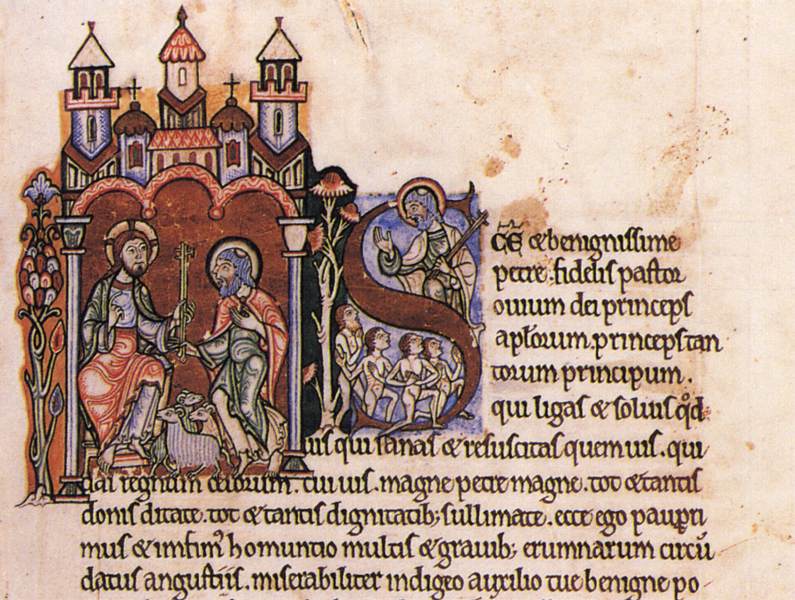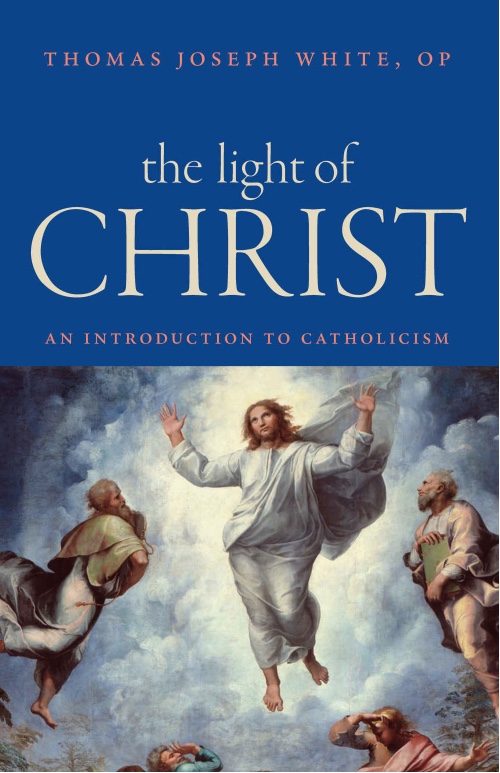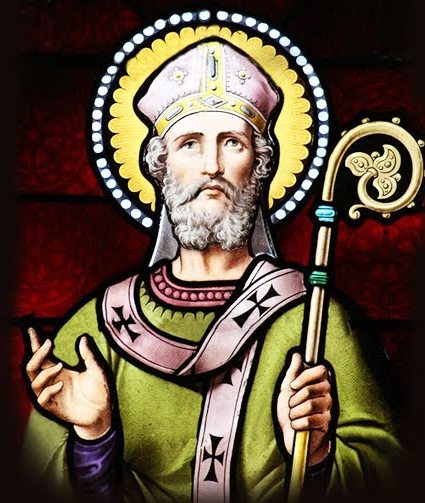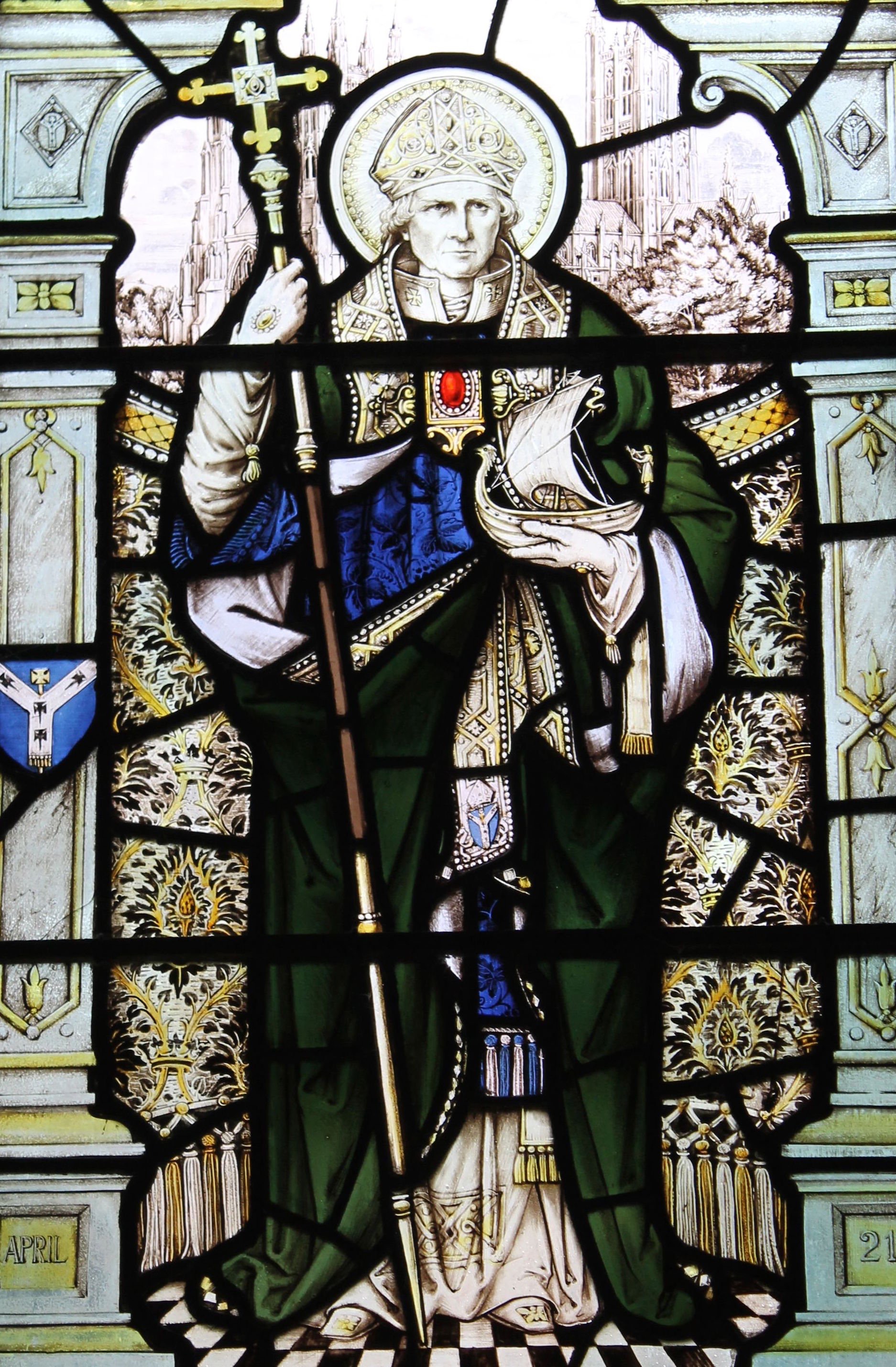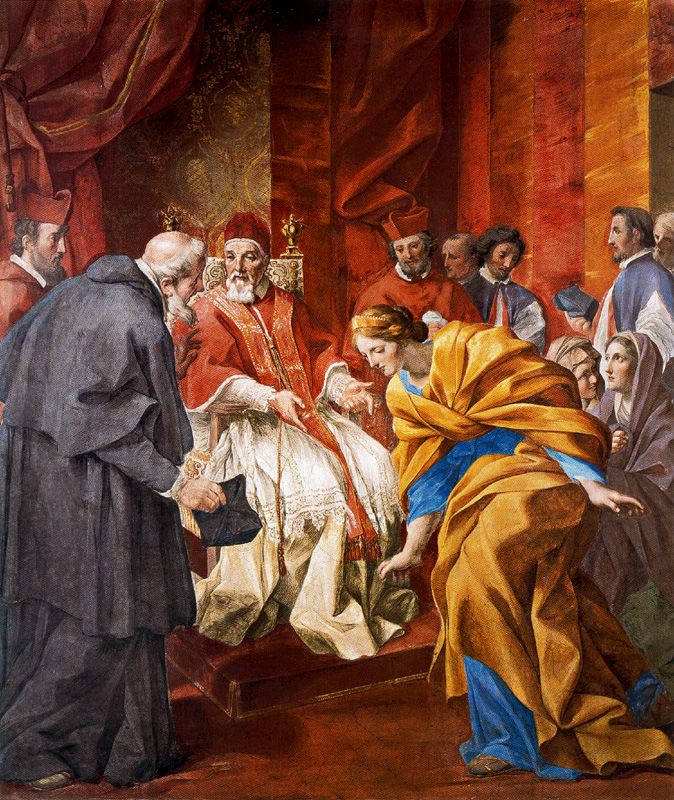
-by Matt Nelson
“St. Anselm’s ontological argument for God’s existence often gets a bad rap, even from many Catholics. For one thing, it can be a difficult argument to understand. Though its premises are rather simple, something about it makes us think we are being tricked. For another thing, we know that eminent authorities like St. Thomas Aquinas have expressed their discontent with the argument.
Nonetheless, I think it is wrong to discard the argument without a second thought. Indeed, I think there is still much of value to be gleaned from it. For simplicity’s sake, here’s a basic sketch of the argument:
- God is the greatest conceivable thing.
- But if something is only in the mind and not in reality, then a greater thing can be conceived.
- So, God cannot only be in the mind.
- Therefore, God exists in reality.
In short, the very idea of God necessitates His existence. Thus, the Psalmist is right when he writes, “The fool says in his heart, ‘There is no God’” (Psalm 14:1). Whether or not this is a perfect representation of Anselm’s argument, it should serve our purposes today.
I would like to set aside for now the objections against it as an argument for God’s existence, not because it’s not an important question. It is indeed a very important question! But before defending the argument, we have to understand better what Anselm was saying. In fact, unbelievers who point out what they believe to be its weaknesses tend to miss Anselm’s meaning, and thus end up “defeating” a straw man. Engaging in an argument without clarifying meanings is never a good idea.
Christian apologists have long been frustrated to deal with popular skeptics railing against God as something other than what he truly is. Comparisons of God to the tooth fairy or Santa Claus are often flippantly made, particularly among the New Atheist types. Pathetic as such caricatures are, they betray a conception among non-believers that God is a finite creature. But for St. Anselm, that is precisely what God is not.
In an age when religious indifference is rampant and serious contemplation of spiritual things is scarce, St. Anselm’s argument is valuable because it takes on the form of a spiritual exercise.
In reality, God is not a thing at all—things in the sense of “beings in the world” have limitations. They can always be imagined to be greater in some way. But as Dominican theologian Herbert McCabe writes, “God cannot be a thing, an existent among others. It is not possible that God and the universe should add up to make two.”
What he means is that God’s mode of existence is completely different than everything else. Indeed, God is the creator of everything, and keeps it in being every moment it exists. This is the kind of God St. Anselm has in mind when he imagines “that than which nothing greater can be conceived.”
The Anselmian proof invites us to do away with the caricatures—a challenger cannot even begin to refute the proof until he seriously entertains the notion of God presented by Anselm. From that starting point, then, all lesser kinds of “divinities”—from Zeus to the Flying Spaghetti Monster—are necessarily ruled out. We must ask the question soberly: what is the greatest conceivable thing? It is certainly not a beast composed of pasta.
There is more than one way to approach the question. We can think about God as unrestricted existence—that is, existence itself. Or in Aristotelian terms, we can think about God as being pure act and no potency—which just means that God is utterly perfect and lacks all possibility of further perfection. Technically (and as St. Thomas affirmed), to think of God as existence itself is probably the best way to think about “what” God is.
But there is another way to think about what it means for God to be, as Anselm put it, “that than which nothing greater can be conceived.” Let’s think about this in concrete terms. What is greater—a God who loves everyone who loves him back, or a God who loves everyone unconditionally? Clearly the latter, for his love is perfect. Now, such “negative theology” can help us understand what God isn’t, but it proves nothing about whether such a thing exists. Still, it can help to clarify the nature of the thing considered—the first step of serious argumentation.
In his influential book, The God of Faith and Reason, philosopher Robert Sokolowski considers another contrast, one that sheds light on St. Anselm’s meaning of God. The first “god” Sokolowski asks us to consider is one who becomes greater as the result of his creation. In this first case, “god + the world” is greater than the god alone. He contrasts this version with another in which God is so great that his creation adds nothing to his perfection. In the latter case, “God + the world” is not greater than God alone. And clearly, argues Sokolowski, this latter God is a greater conception of God than the former. Indeed, no greater God could be conceived. And there are important implications that follow from this.
One implication is that if God creates but gains nothing for himself by doing so, then it follows that God’s act of creation is completely gratuitous and unsolicited. We—the created—have everything to gain by virtue of the gift of our existence.
So, aside from what it contributes to the debate about God’s existence, St. Anselm’s ontological proof helps us to re-establish who God is and what it means for us to exist. It gets us thinking about the big questions again, for we have been created for our own good by a God who is unlimited in perfection. Our lives, then, should be lived in a way that reflects uncompromising gratitude, humility, and trust in God.
If St. Anselm’s argument fails as a proof for God’s existence, it nonetheless does great service in establishing a firm starting point for determining what it is we are trying to prove in the first place. Moreover, it compels us to think seriously about whether such a grand contention could be true.
Love,
Matthew

